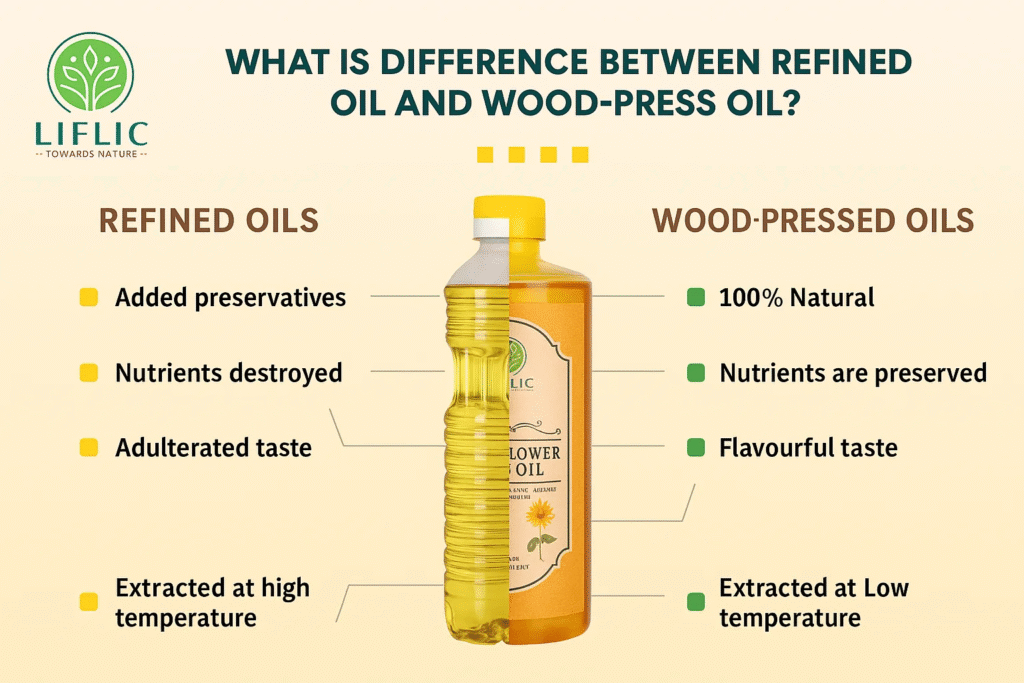
When it comes to cooking oils, the market offers a wide variety of options. But one common confusion people face is choosing between refined oil and wood-press oil. While both are used in everyday cooking, they are vastly different in terms of production methods, nutritional value, health impact, and taste.
Refined oil is produced through a chemical and mechanical process where crude oil extracted from seeds is treated with solvents like hexane and then refined using high heat, bleaching agents, and deodorizing chemicals. This process gives the oil a neutral flavour, light colour, and longer shelf life.
Wood-press oil, also known as cold-pressed oil or Kachhi Ghani oil, is extracted by pressing oil seeds using a traditional wooden press (called a chekku or ghani). The process is slow and takes place at low temperatures, usually below 30°C, which helps retain the natural aroma, flavour, and nutrients of the oil.
Examples of Wood-Press Oils:
Key Characteristics:
Choosing wood-press oils over refined oils can offer a wide range of health benefits:
Refined oils became widely used due to industrial-scale production and cost efficiency. They offer long shelf life, consistent taste, and are suitable for deep frying. However, the downside is the loss of nutrients and possible chemical contamination from the refining process.
In recent years, health-conscious consumers are moving back to traditional oils like wood-press groundnut or sesame oil. The awareness about healthy fats, clean eating, and sustainable food habits is driving this change. Many believe that incorporating wood-press oils into your daily cooking is a simple yet powerful step toward better health.
If you’re looking for a natural, nutrient-rich, and chemical-free cooking oil, wood-press oil is a superior choice. It may be slightly more expensive than refined oil, but the health benefits outweigh the cost in the long run.
That said, it’s also important to buy from trustworthy brands that use authentic wooden presses and don’t mix the oil with refined versions. Always check for:
The difference between refined oil and wood-press oil is not just about processing—it’s about health, tradition, and the quality of what we consume daily. While refined oil may be more convenient and cheaper, wood-press oil offers a natural, nutrient-rich alternative that aligns with a healthier lifestyle. By switching to wood-press oils, you not only enhance the flavour of your meals but also take a meaningful step toward long-term wellness.
Copyright © 2025 Magar Natural Food | All Rights Reserved | Created & Crafted by Itorix Infotech LLP